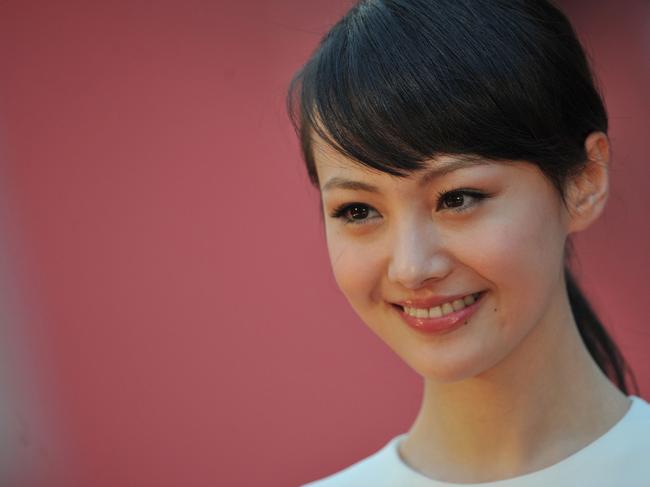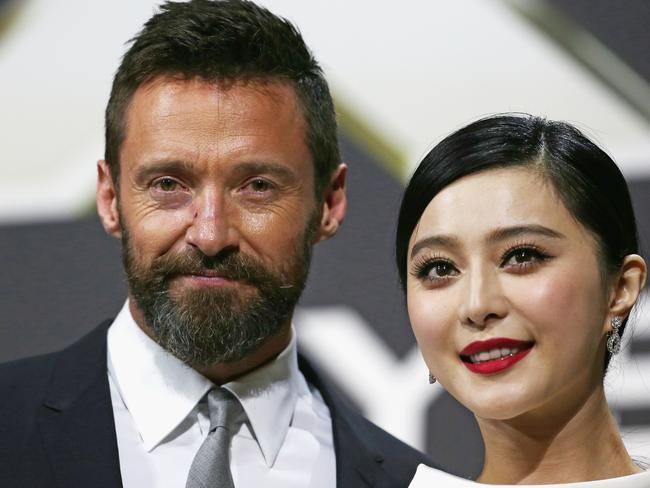China’s biggest movie star was erased from the internet, and the mystery is why
Zhao Wei was the Reese Witherspoon of China, then she was censored by the Communist Party amid a clampdown of the country’s entertainment industry.

Zhao Wei spent the past two decades as China’s equivalent of Reese Witherspoon, a beloved actor turned business mogul.
She directed award-winning films, sold millions of records as a pop singer and built a large following on social media, amassing 86 million fans on Weibo, China’s Twitter-like microblogging site. She also made a fortune as an investor in Chinese technology and entertainment companies.
Today, the 45-year-old star has been erased from the Chinese internet. Searches for her name on the country’s biggest video-streaming sites come up blank. Her projects, including the wildly popular TV series My Fair Princess, have been removed. Anyone looking up her acclaimed film, So Young, on China’s equivalent of Wikipedia wouldn’t know she was the director. The field now reads “ -- --”.
Zhao’s online disappearance on August 26 came at the onset of a broader clampdown on the country’s entertainment industry as the Communist Party attempts to halt what it sees as a rise in unhealthy celebrity culture. The Chinese government hasn’t publicly stated what prompted this sudden change to her status, raising questions among fans and observers about how far it is willing to go against her and other celebrities, and why.
The mystery has also sparked open speculation over what, if anything, she might have done wrong.
“Zhao Wei is like a poster child for what the Communist Party sees as what’s wrong with celebrity culture in China,” says Stanley Rosen, a professor at the University of Southern California who specialises in Chinese films and politics.
“It’s a demonstration that no one, no matter how wealthy or popular, is too big to pursue.”
In Zhao’s case, he adds, the lack of explanation “will certainly make other celebrities extremely cautious and proactive in embracing regime goals”. A new outpouring of public interest in Zhao’s status erupted this week after the appearance of photos and video that purported to show the star, dressed casually in shorts and a purple T-shirt, visiting a telecom service branch the day before in her home town of Wuhu in eastern China. The Wall Street Journal was unable to verify the authenticity of the images, which were shared widely on Chinese social media by fans.
Zhao didn’t respond to requests for comment. Her films and TV shows remained unsearchable on video-streaming sites. The Cyberspace Administration of China, the country’s internet regulator, didn’t respond to an inquiry.
In the past few weeks, other celebrities have also been scrubbed, including Zheng Shuang, an actor bogged down by a tax evasion probe, and Zhang Zhehan, a young actor who was earlier slammed by the Communist Party’s flagship newspaper after he was found to have visited a controversial shrine in Japan related to World War II while attending a friend’s wedding.
In an unprecedented campaign launched last month, the party banned the ranking of celebrities by name on social media platforms, ordered traditional broadcasters and streaming platforms to ban artists who don’t meet political or moral standards, and effectively banned the children of pop stars from appearing in entertainment shows.

Zhao hasn’t publicly addressed her online erasure. On August 29, after rumours spread on Chinese social media that she had fled to France on a private jet, she posted a message to Instagram saying that she was in Beijing with her parents. The message was deleted within hours.
Speculation over Zhao’s situation has lit up Chinese social media. One group pointed to her connection to Zhang, the banned young actor, who is represented by an agency she owns. Nationalists among the online speculators celebrated her vanishing.
“The power to uproot such a high target really belongs to our nation,” said a movie blogger with a handle that translates to Stark Wild Nuts With Roasted Corns. She said in a post that she spent many of the past weeks sparring verbally with fans of Zhang and Zhao, and reporting them to the national security agency.
After Weibo deleted Zhao’s fan page when other platforms censored her name, her fans posted messages of support on their own microblogs and on her brother’s Weibo page, urging the family to sue the attackers for defamation.
The comments often defended the star while refraining from challenging the unexplained decision to ban her.
“The state knows her political stand better than any netizen,” wrote one supporter by the name Tough Pea Sprout, who presented a list of prominent government events Zhao had been invited to. A representative of China’s soft power in 2013, she was introduced to South Korea’s then president Park Geun-hye by President Xi Jinping at a state banquet.
To many, Zhao’s erasure recalls the disappearance in 2018 of fellow megastar Fan Bingbing amid a tax evasion scandal. Fan, who appeared in 2014’s X-Men: Days of Future Past, vanished from public sight for three months before emerging to issue an apology and pay a $US70m fine.
Zhao is in many ways a bigger figure than Fan. She launched her career in 1998 portraying a freewheeling Qing dynasty royal in the smash hit, My Fair Princess. Over the years she cemented her star status by expanding into more roles and putting out hit pop records. In the late 2000s, she married developer Huang Youlong. She also became a major player in the business world, making investments with her husband in film and tech that in 2015 pushed their combined assets to hundreds of millions of dollars.

Zhao has also stirred controversy. In 2001, she apologised after Chinese media faulted her for appearing in a fashion magazine with a dress that featured a Japanese wartime flag. In 2016, she dropped a Taiwanese actor from a film she was directing after Chinese internet users accused him of advocating for Taiwan’s independence.
The following year, Zhao and her husband were banned by China’s securities regulator from trading mainland stocks for five years for allegedly misleading investors. Zhao said at the time that she did nothing wrong. Huang said he never intentionally tried to attain wealth via illegal or immoral means.
Following her online disappearance, a wide range of state-run media republished an essay written by a former newspaper editor amplifying the idea that the current moves against celebrities, including Zhao, were part of a broader effort by Xi to rein in the rich and address the country’s yawning wealth gap.
The essay echoed earlier speculation by linking Zhao to Jack Ma, the larger-than-life founder of e-commerce giant Alibaba, who has been a central figure in Xi’s campaign targeting the tech sector. It noted that the two of them had mingled with a well-connected spiritual guru.
Much of Zhao’s wealth came from a stake she and her husband bought in Alibaba’s entertainment arm. Separately, between 2016 and 2020, she purchased shares in one of the funds under Yunfeng Capital, backed by Ma, alongside several wealthy Chinese entrepreneurs, according to China’s company registry database.
The registrations also recorded that a director in Zhao’s companies, whose name matches that of her mother, had taken a stake in Ant Group, a financial-technology giant founded by Ma that was on track for a record-setting public listing that was called off on Xi’s orders last year.
Alibaba, Ant and Ma didn’t reply to requests for comment. One fan of Zhao’s, a civil servant in his late 20s who was willing to give only the surname Zhang, says he believes her past was no more deserving of punishment than that of most other celebrities and was happy to see the photos of her that circulated Wednesday. “If she can walk around freely, she probably isn’t in big trouble,” he says. As for the erasures? “I’m still waiting for an explanation.”
THE WALL STREET JOURNAL


